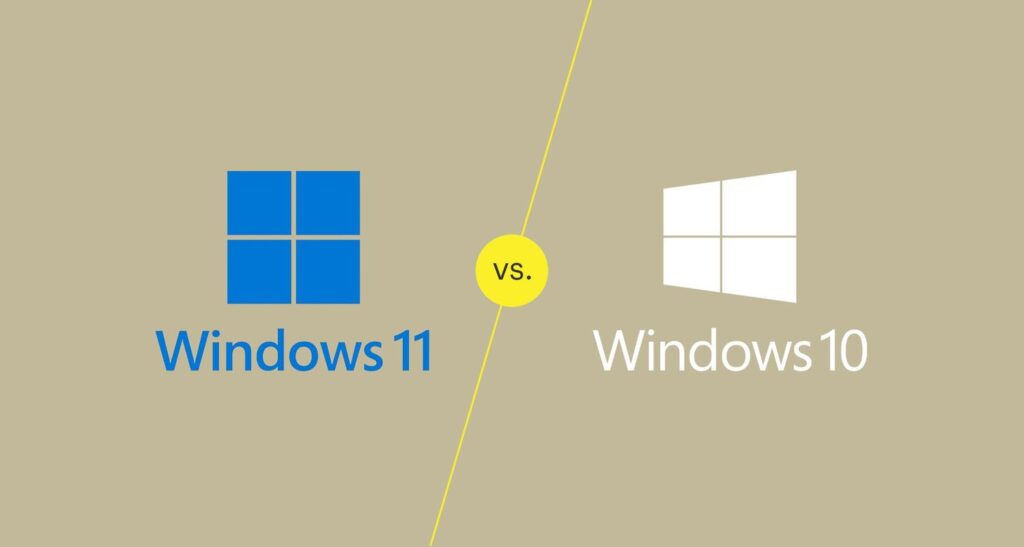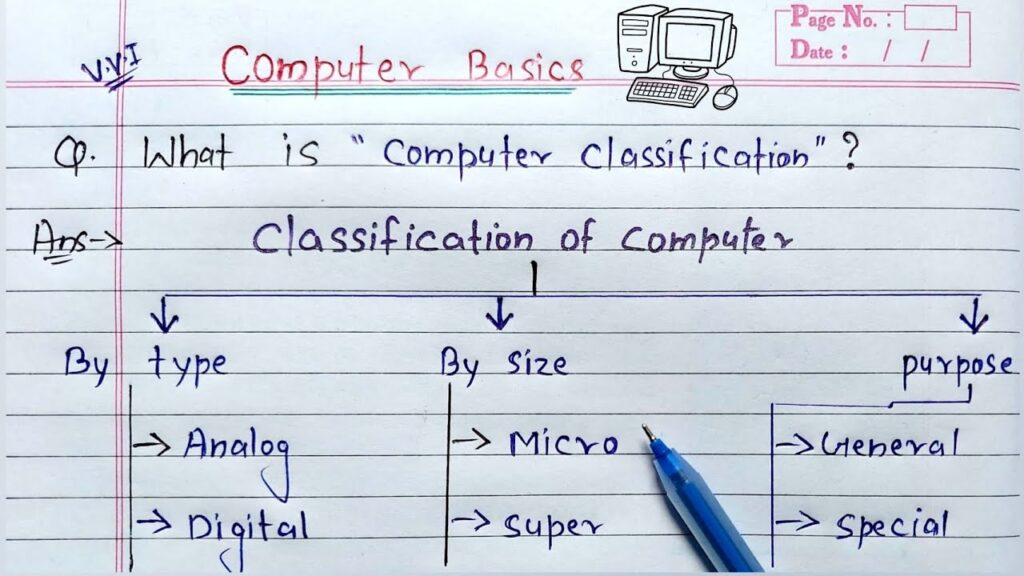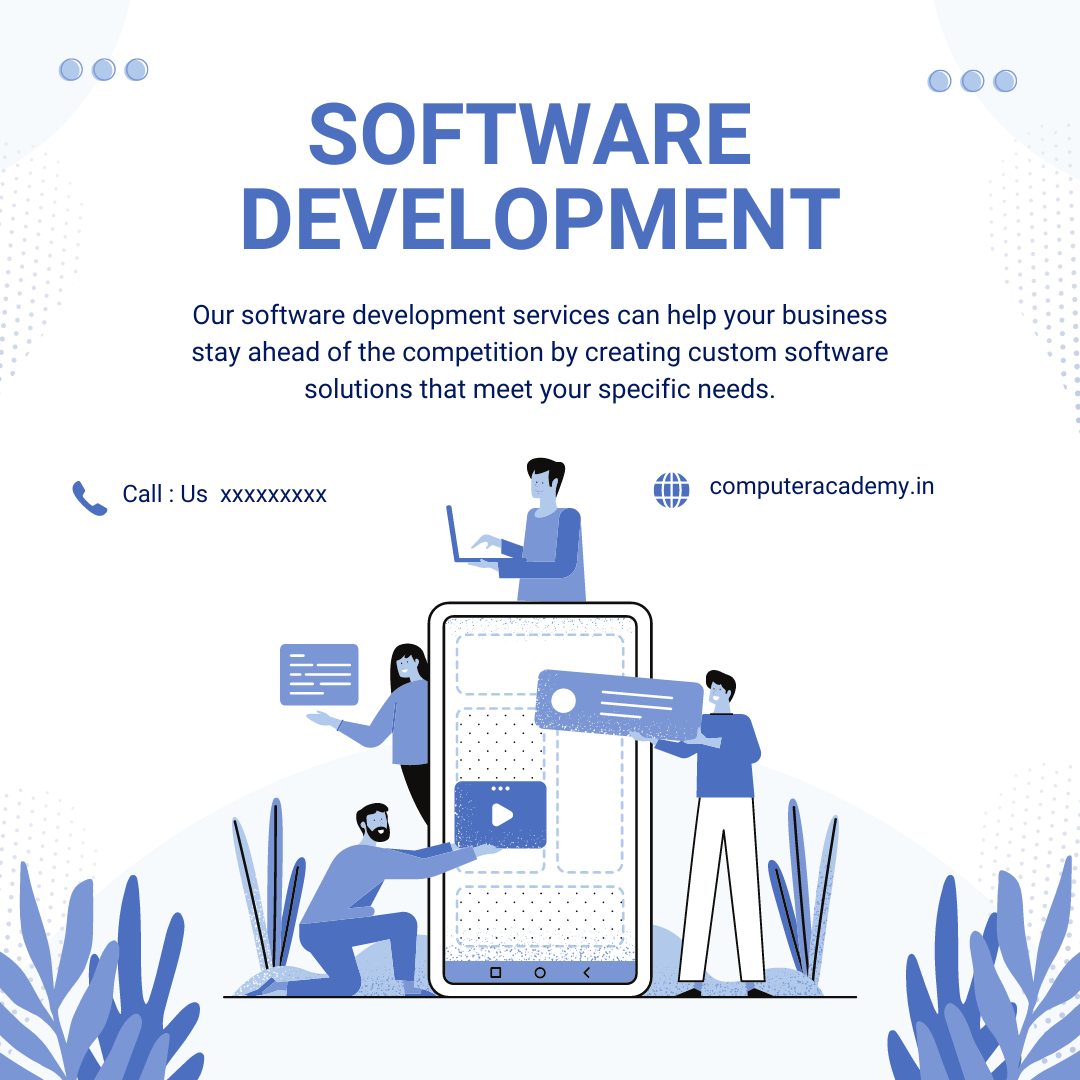1. **Operating Systems**
– Windows (various versions)
– macOS
– Linux distributions (Ubuntu, Fedora, etc.)
– Mobile OS (Android, iOS)
Software Topics Notes
2. **Office Suites**
– Microsoft Office (Word, Excel, PowerPoint, Access, Outlook)
– Google Workspace (Docs, Sheets, Slides, Forms)
– LibreOffice
3. **Graphics and Design**
– Adobe Photoshop
– Adobe Illustrator
– CorelDRAW
– GIMP
4. **Web Development**
– HTML, CSS, JavaScript
– Front-end frameworks (React, Angular, Vue.js)
– Back-end technologies (Node.js, Django, Ruby on Rails)
– Content Management Systems (WordPress, Joomla, Drupal)
5. **Database Management**
– SQL (MySQL, PostgreSQL, SQLite)
– NoSQL (MongoDB, Cassandra)
– Database design and normalization
6. **Programming Languages**
– Python
– Java
– C/C++
– JavaScript
– PHP
– R
7. **Cybersecurity**
– Antivirus and security software
– Firewall configuration
– Network security
– Ethical hacking and penetration testing
8. **Software Development Tools**
– Integrated Development Environments (IDEs) like Visual Studio Code, PyCharm, Eclipse
– Version control with Git and GitHub
– Agile and Scrum methodologies
9. **Data Science and Analytics**
– Data analysis with Python (Pandas, NumPy)
– Data visualization (Matplotlib, Seaborn)
– Machine learning basics (scikit-learn, TensorFlow)
– Data processing tools (Hadoop, Spark)
10. **Networking**
– Network topologies and protocols
– Router and switch configuration
– Wireless networking (Wi-Fi, Bluetooth)
– Cloud computing basics (AWS, Azure, Google Cloud)
11. **Software Testing**
– Manual testing techniques
– Automated testing tools (Selenium, JUnit)
– Test-driven development (TDD)
12. **Multimedia and Video Editing**
– Adobe Premiere Pro
– Final Cut Pro
– Audacity for audio editing
– Blender for 3D modeling and animation
13. **Productivity and Collaboration Tools**
– Project management tools (Trello, Asana, Jira)
– Communication tools (Slack, Microsoft Teams)
– Remote desktop software (TeamViewer, AnyDesk)
14. **Artificial Intelligence and Machine Learning**
– Basics of AI and ML
– Natural Language Processing (NLP)
– Deep learning concepts (Neural networks, CNNs, RNNs)
15. **Software Installation and Troubleshooting**
– Common installation issues and solutions
– Software compatibility and system requirements
– Troubleshooting software errors
Great! Here are more software-related topics that could be useful for your classes or content creation:
16. **Cloud Computing**
– Cloud service models (IaaS, PaaS, SaaS)
– Cloud storage solutions (Google Drive, Dropbox)
– Virtualization and containerization (Docker, Kubernetes)
17. **Automation Tools**
– Task automation with scripting (Bash, PowerShell)
– Workflow automation tools (Zapier, IFTTT)
– Robotic Process Automation (RPA) tools (UiPath, Automation Anywhere)
18. **Enterprise Software**
– Customer Relationship Management (CRM) software (Salesforce, Zoho CRM)
– Enterprise Resource Planning (ERP) software (SAP, Oracle)
– Human Resource Management Systems (HRMS)
19. **E-commerce Platforms**
– Setting up online stores (Shopify, WooCommerce)
– Payment gateway integration (PayPal, Stripe)
– Inventory management software
20. **Mobile App Development**
– Android app development (Java, Kotlin)
– iOS app development (Swift)
– Cross-platform development frameworks (Flutter, React Native)
21. **Game Development**
– Game engines (Unity, Unreal Engine)
– 2D and 3D game design
– Mobile game development
22. **Virtual Reality (VR) and Augmented Reality (AR)**
– Basics of VR and AR
– Development tools (Unity, Vuforia)
– Applications in various industries
23. **System Administration**
– Server management (Windows Server, Linux Server)
– System monitoring tools (Nagios, Zabbix)
– Backup and recovery solutions
24. **Remote Work Technologies**
– Virtual private networks (VPNs)
– Video conferencing tools (Zoom, Google Meet)
– Remote desktop solutions
25. **Educational Software**
– Learning Management Systems (LMS) like Moodle, Blackboard
– Educational apps and tools (Khan Academy, Duolingo)
– Interactive whiteboards and smart classrooms
26. **Financial Software**
– Personal finance management tools (Mint, YNAB)
– Accounting software (QuickBooks, Tally)
– Investment tracking software

27. **Open Source Software**
– Benefits of open source
– Popular open source projects (Linux, Apache, GIMP)
– Contributing to open source communities
28. **Legal and Compliance Software**
– GDPR compliance tools
– Legal case management software
– E-discovery tools
29. **Health and Fitness Software**
– Health monitoring apps
– Fitness tracking software (MyFitnessPal, Fitbit)
– Telemedicine platforms
30. **Artificial Intelligence in Everyday Applications**
– AI in personal assistants (Siri, Alexa)
– AI in recommendation systems (Netflix, Amazon)
– AI in healthcare (diagnosis tools, drug discovery)
31. **Virtual Machines**
– Setting up virtual machines (VMware, VirtualBox)
– Use cases for virtual machines
– Managing virtual environments
32. **Blockchain Technology**
– Basics of blockchain
– Cryptocurrencies (Bitcoin, Ethereum)
– Applications of blockchain beyond cryptocurrencies
33. **Software Licensing and Distribution**
– Types of software licenses (GPL, MIT, proprietary)
– Software distribution models (Freemium, Subscription-based)
– Intellectual property rights in software
34. **Robotics and Automation**
– Basics of robotics
– Robotic operating systems (ROS)
– Industrial automation
35. **Internet of Things (IoT)**
– IoT architecture
– IoT devices and applications
– IoT security concerns
36. **Digital Marketing Tools**
– SEO tools (Ahrefs, SEMrush)
– Social media management tools (Hootsuite, Buffer)
– Email marketing software (Mailchimp, Sendinblue)
37. **Big Data Technologies**
– Hadoop ecosystem
– Data warehousing (Redshift, BigQuery)
– Data lake vs. data warehouse
38. **API Development and Integration**
– RESTful APIs
– SOAP APIs
– API documentation and testing tools (Swagger, Postman)

39. **Data Privacy and Protection**
– Data encryption methods
– Privacy regulations (GDPR, CCPA)
– Best practices for data protection
40. **Human-Computer Interaction (HCI)**
– Principles of HCI
– User interface (UI) and user experience (UX) design
– Usability testing methods
Table of Contents
Software Topics Notes
These topics cover a broad range of software-related areas that can be explored in depth. If you need specific notes or content on any of these topics, feel free to ask!
Software Topics NotesSoftware Topics NotesSoftware Topics NotesSoftware Topics NotesSoftware Topics NotesSoftware Topics NotesSoftware Topics NotesSoftware Topics Notes


Your article helped me a lot, is there any more related content? Thanks!